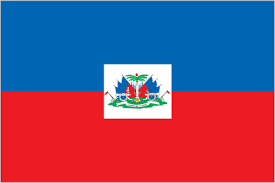Our weekly explainer series, China Ties, looks at China’s relationship with different countries of the world.
It feels like every time Haiti is in the news, it’s because of yet another visit to the country by the four horsemen, a sorry procession of earthquakes, floods, assassinations, famine, gang crime, cholera, and governmental collapse. The country last held elections before Donald Trump took office, and now no branch of government has any elected officials, not even the courts. To top it all off, Haiti has the sad title of being the poorest country in the Western Hemisphere.
If that wasn’t bad enough, humanitarian aid from both the P.R.C. and Taiwan has been turned into a game of politics, both sides wanting Haiti’s pawn on their board. “Haiti is [categorized as] a Least Developed Country with an extremely weak government,” says Lorenzo Maggiorelli of the Pontifical Javeriana University, an expert on Taiwan’s relationship with Haiti. “It is therefore very vulnerable to foreign economic and political pressure.”
That’s because Haiti recognizes Taiwan as China’s rightful government, and has done so since 1956. That means the P.R.C. has limited diplomatic ties with Haiti, beyond agreeing to a small “Bureau of Commercial Development” in 1996. Although Chinese soldiers have been part of UN peacekeeping missions in Haiti, and the country is responsible for a good chunk of its imports — $116 million in the first quarter of this year — Haiti’s diplomatic relations still rest firmly with Taiwan.
For Maggiorelli, it’s because of the strings China attaches to its diplomatic offerings, demanding “mutual benefit,” while Haiti is too poor to provide much in return for Chinese financing. Although the P.R.C. has given aid in the past, Taiwan has given many millions more — as much as 20% of the Haiti government’s budget in the late 2000s — and been more flexible, backing a wider variety of projects.
Republic of Haiti
Founded: January 1, 1804
Population: 11.7 million
Government: Constitutional Democracy (de jure), Failed State (de facto)
Capital: Port-au-Prince
Largest City: Port-au-Prince
Established relations with the P.R.C.: N/A
The poorest country in the Western Hemisphere
Haiti is seen by the P.R.C. as America’s political backyard — not unreasonable given the importance of U.S. trade and aid to the stricken country. It makes Haiti a prime target for criticism of U.S. foreign intervention, with China arguing that the U.S. is part of Haiti’s current problems.
“Historically, every time there was a riot in Haiti, the United States would intervene militarily,” Xu Shicheng, a researcher at the Institute of Latin America and an honorary member of the Chinese Academy of Social Sciences, told Red Star News in 2021. “Multiple military interventions have only exacerbated the political turmoil in Haiti.”
It’s the argument used by China in the UN, most recently last October when protesting the extension of the UN’s peacekeeping mission. “Will sending such a rapid-action force to Haiti receive the understanding, support, and cooperation from the parties in Haiti, or will it face resistance or even trigger a violent confrontation from the population?” was how the Chinese deputy representative to the UN rhetorically put it, backing sanctions of Haiti’s criminal gangs but balking at putting troops on the ground.
Diplomats told the AP the reason China dragged its heels at this most recent vote in the UN Security Council was due to Haiti’s continuing alliance with Taiwan, something Beijing denies. Although Maggiorelli says China’s use of the Security Council veto was indeed a tactic China used against Macedonia and Guatemala in the 1990s, he argues Chinese policy has evolved since then, pointing to the troops China has put on the ground as part of UN peacekeeping missions, and the millions of yuan donated to Haiti for reconstruction purposes after the 2010 earthquake.
These gestures have strings of their own. Beijing has been stepping up its efforts to win over Taiwan’s remaining allies since the election of Tsai Ing-wen (蔡英文 Cài Yīngwén) in 2016 — hence the announcement of two big infrastructure projects in October 2016 worth $2 billion, treading on the toes of Taiwanese largesse. Haiti also didn’t support Taiwan’s bid for UN membership in 2004 while P.R.C. troops were in the country.
The Haiti-Taiwan relationship endured despite this. When neighboring Dominican Republic swapped to the P.R.C.’s side in 2018, Haiti’s president visited Taiwan, and Taiwan pledged its first-ever development loan given to an ally, worth $146 million. But then chief of staff Wilson Laleau said at the time that the Haitian government wouldn’t rule out a future investment partnership with the P.R.C. Back when there was a Haitian government, that is.
Today, Taiwanese aid can’t be taken for granted. The development loan project was delayed (and has not restarted) after the 2021 assassination of Haitian President Jovenel Moïse, and Taiwanese financial aid after this month’s floods have been pitifully low. “Of course the Taiwanese government’s budget is not unlimited,” says Maggiorelli. He adds, “Many people in Taiwan feel that maintaining diplomatic allies through the disbursement of aid is not an effective or an ethical way of conducting diplomacy,” citing this as the reason why Taiwan doesn’t release data on its foreign aid spending.
Only time will tell if Taiwan will keep the Western Hemisphere’s poorest country on its side.








